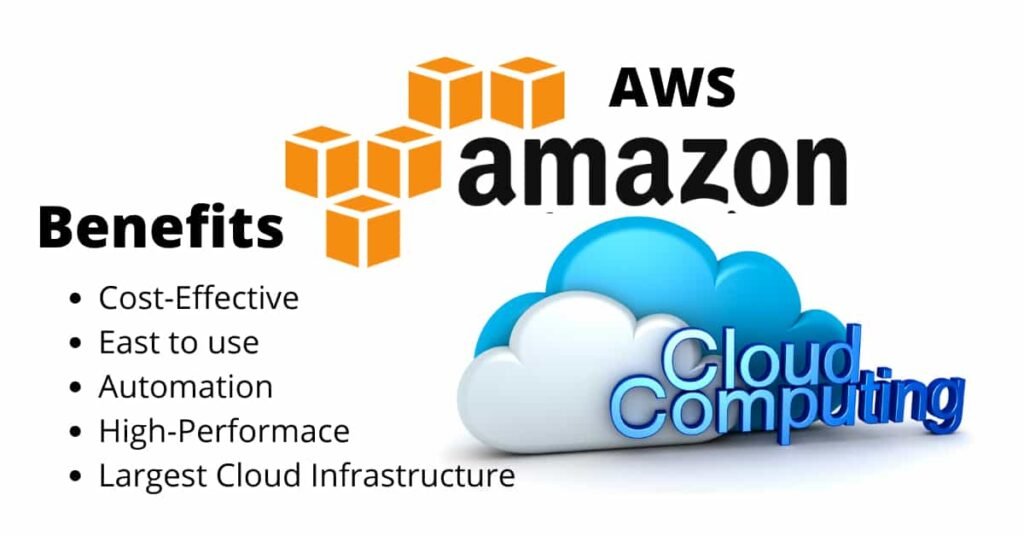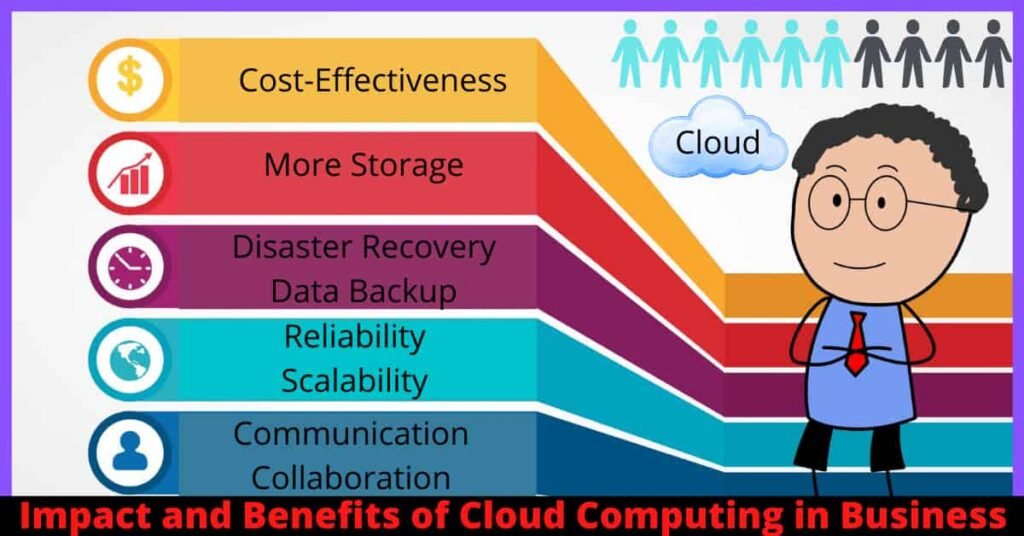What is a cloud server? In short, a cloud server is basically a type of logical server that can be created, hosted, or distributed over the Internet through a platform of cloud computing. Sometimes it can also be called a virtual private server or virtual server.
Talking about cloud servers, these are new technologies that have been widely used across the world. The fact is that there is a huge advantage of using different types of cloud servers as per the requirement of the business enterprises.
With technological advances, business organizations are also poised to be highly competitive for the future, and the adoption of cloud technology is the need of the hour. With cloud computing, business organizations can save a lot of money on storage, servers, and management services, as these business-related services can be moved to the cloud with minimal cost, making your operations more efficient and secure.
![What Is Cloud Server and How Does It Work [2023] | Top Cloud Server Providers, Example, Types, Cost 1 What is a Cloud Server and how it works](https://mywebshosting.com/wp-content/uploads/2022/01/What-is-a-Cloud-Server-Means.png)
What Is a Cloud Server?
A cloud server is an advanced and robust virtual or physical infrastructure that performs application- and data-processing storage. In addition, cloud servers are created by using virtualization software to split a physical (bare metal) server into multiple virtual (cloud) servers.
A cloud server is a consolidated, centralized, collaborative, server resource hosted on a network and typically distributed over the Internet and accessed on demand by multiple users. In addition, cloud servers can perform all the same functions and provide all the same services as traditional physical servers, such as distributed databases, processing power, storage of data, and applications.
Most organizations use the infrastructure as a service (IaaS) model to execute workloads, manage and store information. Therefore they can easily access the virtual server functions remotely through the online interface.
Cloud servers cost cheaper than dedicated servers. On cloud infrastructure, you only pay for what you use and need today and can pay on an hourly or even monthly basis.
What Is Cloud Server In Simple Terms
A cloud server is a consolidated, centralized, collaborative, server resource that is hosted and distributed over a network – usually the Internet – and can be accessed on demand by multiple users. In addition, cloud servers can perform all the same functions as traditional physical servers, such as distributed databases, processing power, storing data, and applications.
If we talk about its location then cloud servers can be located anywhere in the world and can provide services remotely easily through cloud computing environment. In contrast, traditional dedicated server systems are usually installed on-premises for specific use by an organization.
Why Is It Called a Cloud Server?
Within this infrastructure, a centralized collaboration system of computing resources is said to be “in the cloud”. Meanwhile, this means that it is distributed over a network such as the Internet, as opposed to being located on-premises and accessed directly. Here, the cloud server is one of the most prominent examples of cloud computing resources along with cloud networking, database, storage, and software.
What is Cloud Computing?
Cloud computing is the ecosystem and on-demand service availability of computer system resources, especially the capacity used for data access, storage, distribution, and computation without direct active management by the user. Cloud computing often has multiple locations and each location acts as a data center, so it provides, distributes its services. The main functions are on-demand distribution across multiple locations.
What is A Cloud Hosting?
Cloud hosting makes websites and apps accessible using cloud-based resources. Unlike traditional hosting in this type of platform, solutions are not deployed on a physical server.
Cloud Server Types and Features
A business can choose from several types of cloud servers and mainly includes three primary models:
⚫ Private Cloud Servers:
A private cloud, also known as an internal cloud or enterprise cloud, is a cloud computing ecosystem in which all software, application, and hardware resources are exclusively dedicated, and can only be accessed by a single consumer. Furthermore, it is defined as computing services distributed through the Internet or private internal web and only to select users rather than the general public.
⚫ Public Cloud Servers:
Typically, a public cloud server is a web-based service instance in which a web hosting provider provides various shared resources, such as servers, applications, and data storage, to the general public. However, it is a multi-tenant environment, with different customers using the same set of IT infrastructure. Typically, you pay for these shared resources on a pay-as-you-go basis.
Moreover, a public cloud is a cloud deployment model where cloud computing resources are managed, owned, and operated by a single service provider and shared among multiple lessees via the Internet.
⚫ Dedicated Cloud Servers:
Generally, a dedicated cloud is a single-holder cloud system that functions virtually as an isolated, single-tenant public cloud. Dedicated Clouds are set up as an infrastructure as a service (IaaS) and built to reduce an organization’s downtime and costs while promoting scalability, flexibility, security, and improving performance.
How Does a Cloud Server Work?
A cloud server is a type of virtual server rather than a physical server running in a cloud computing ecosystem. In addition, it is hosted, built, handled, managed, and distributed via a cloud computing base via the Internet, and can be accessed remotely by anyone. Sometimes, they are also known as virtual servers. Cloud servers contain all the software or applications needed to run and can function as independent divisions.
How To Work On Cloud Server
You need to set up a cloud server before you can start working. First, you need to log in to the Cloud Control Panel. In the top navigation bar, click Select Products or Services and Choose a server, click on Cloud Server and create a server. In the Server Details section, enter a name for your server in the Server Name field. This is a basic step and may vary depending on the cloud platform you are using.
Monitoring and managing a private cloud server requires software application tools to create a virtualized set of computing resources, provide a self-service portal for end-users, and handle resource allocation, security, analysis, and billing.
Why Do We Need a Cloud Server?
Cloud servers help in developing overall business stability, cost reduction, speed, and security as there are no software issues in your online business thereby freeing you from any kind of issues. Here you’ll find the extra resources you need and a faster support service for the same price as a physical server.
In addition, a cloud-hosted website will improve performance, and run faster. You get more flexibility and scalability with cloud servers. With the use of innovative cloud computing technology, unlimited scalability, and continuous access to applications and data, cloud-based infrastructure allows small businesses in all sectors.
What is the Use of Cloud Server?
You can do a lot with cloud servers and users can get access to virtual private servers in the following ways:
- Running and Hosting your Website on a cloud-based server
It allows you to deploy almost any OS software you want to use and even you don’t need to share storage space bandwidth or RAM with others.
- Host and Manage Apps and Other Projects
You can host your business projects like apps etc and save a lot of cost and manpower resources. But before now, many online projects required an on-site presence of all team members. Now, enterprises can use remote workers, deploying their projects on virtual private servers allowing team members to work from any region of the world.
- Private Sync Service
The ability to access and modify your data is easily made possible by cloud computing. However, sometimes using public sync services like Google Drive, Dropbox and others may not be very secure for your business. If you are not satisfied and facing problems using third-party sync services, then you are a good option to install it on your virtual private cloud server. You now have options to start your own private sync service using cloud servers and to increase the security levels.
- Cloud servers can perform all the same functions as traditional physical servers
When you use a cloud server, its functionality increases due to its flexibility, while at the same time it can perform all the same functions as a traditional physical server, such as database storage, processing information, distributing, and application management.
- Helps to Reduce Cost, Improve Performance, and for greater Security
Cloud server hosting fully assists in growing your business. This creates a cloud environment that helps reduce costs, improve performance, and lead to greater security.
What are examples of Cloud Servers?
The following are examples of cloud servers:
- Amazon Elastic Compute Cloud (EC2) Instance.
- Microsoft Azure Instance.
- Google Compute Engine Instance.
- Private Cloud Server. A cloud server can also be a compute instance within an on-premises private cloud.
Example of Cloud Services:
- File storage and backup
- Web-based email
- Project Management Tools
Examples of SaaS cloud service providers:
- Google G Suite
- Dropbox
- Microsoft Office 365
Top 11 Cloud Server Providers
Here is a list of the top 11 cloud service providers in the world:
| Top 11 | Cloud Server Providers |
| 1 | Amazon Web Services (AWS) |
| 2 | Google Cloud (GCP) |
| 3 | Microsoft Azure |
| 4 | IBM Cloud |
| 5 | Alibaba Cloud |
| 6 | Oracle Cloud |
| 7 | Salesforce |
| 8 | SAP |
| 9 | Dell / VMWare |
| 10 | Rackspace Cloud |
| 11 | DigitalOcean |
Also Read: Google Cloud Credits
Difference Between Cloud and Server
What is the difference between a cloud server and a traditional server?
“Cloud computing” has become synonymous with the Internet in general. But in fact, many types of cloud systems exist, both public and private, that are formed by any set of connected servers that distribute and consolidate computing resources over a network.
Whereas cloud servers can be compared to traditional, dedicated servers. Although the resources of a cloud server can be shared by multiple users, a dedicated server is designed for a particular use by a company or enterprise. It must be installed, managed, and operated by that organization, whereas cloud servers may be owned and managed by a third party.
Future Of Cloud Server
Nowadays we are witnessing huge growth in the cloud segment and cloud server has revolutionized the IT industry. Currently, many organizations have moved away from setting up traditional, centralized physical servers and outdated infrastructure to take advantage of this game-changing technology.
In short – “What is Cloud Server”
A cloud server is a robust virtual or physical cloud infrastructure that performs various data processing such as storage, access, distribution, and managing. However, a cloud server is a virtual rather than a physical server that provides services through a cloud network. It is a type of logical server system which is built on cloud infrastructure and the basic function is storage but can perform many other functions as per the requirement.

![How to Get Google Cloud Credits For Startups [Free] 2023 9 Google Cloud Credits For Startups](https://mywebshosting.com/wp-content/uploads/2021/04/google-cloud-credits-for-startups-1024x536.jpg)


